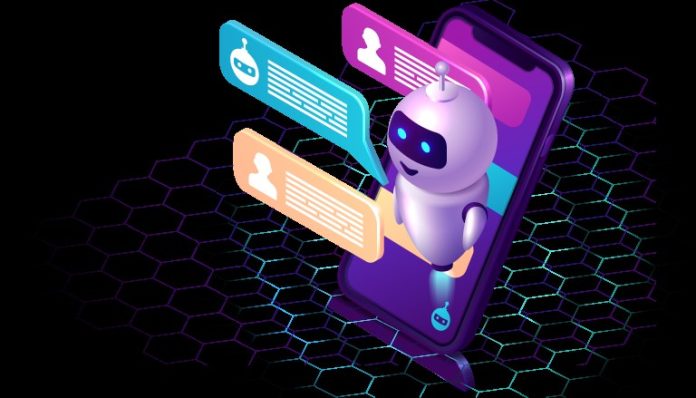You’ve probably heard about chatbots by now. They’re all the rage, and for a good reason – a fantastic medium to engage with your customers and offer them the best possible customer experience.
But are all chatbots the same?
No, they are not. Different chatbots are designed to serve different needs and goals.
In this blog, we will discuss the different types of chatbots, their use cases, and their benefits. By the time you end reading this piece, you will know everything you need to know about enterprise chatbot solutions or, in more technical terms, ‘conversational AI.’
So what are chatbots, exactly?
At their core, chatbots can simulate human conversations. Chatbots are used to interact with customers on websites and mobile apps. They can provide customer support, answer questions, and sell products. Chatbots are becoming increasingly popular and are used by many businesses.
How Do Chatbots Work?
Using artificial intelligence (AI) and natural language processing (NLP), chatbots can understand and respond to users based on their input. For a chatbot to understand the context of a conversation and provide a relevant answer, it requires training data. Training data refers to information about the conversations between humans and chatbots.
Chatbots are intelligent computer programs that can be programmed to learn and adapt to new trends in the environment. This means that they can easily be used to match the needs of a particular industry. They are especially effective at performing repetitive tasks. They can handle requests without requiring any additional effort from the user.
Types of Chatbots
Chatbots are primarily of two types:
- Chatbots that Assist Humans and
- Chatbots that Assist Businesses
An excellent example of the former would be Amazon’s Alexa. These chatbots are designed to assist humans with their day-to-day lives. They can respond to questions, give information, make recommendations, and do other things that benefit the user.
For this blog, we focus primarily on the second type, i.e.,
Enterprise Chatbot Solutions Designed for Businesses
The business chatbot industry is a rapidly growing industry, and so is the demand for a chatbot development company. Depending on the specific business goal and need, there can be many different business chatbots.
Here are some popular use cases:
1. Customer Service Bot: Assist businesses with customer service. It answers questions about products, services, or information. These bots can handle many tasks and answer customers’ inquiries accurately.
2. Ordering Bot: An ordering bot provides customers with a list of available items and asks them if they need them in their cart. If a customer wants to change something about their order, an ordering bot can adjust the items accordingly.
3. Sales Bot: It is similar to an ordering bot, but instead of providing a list of items, it provides a list of products based on a customer’s search criteria. After a customer selects a product, the bot will guide them through the checkout process.
4. Marketing Bot: Created to help companies market themselves. They are often programmed to respond to specific keywords and phrases and send out tweets, emails, or texts to potential customers.
5. HR Bot: Human resource (HR) bots are designed to help companies recruit employees. They can answer questions about job openings, interview schedules, or salaries offered by employers.
Business Chatbots Benefits
If you’re still on the fence about enterprise chatbot solutions, let’s look at some of the benefits they offer businesses:
1. Chatbots are more efficient than humans
Chatbots never get tired; they’re always up for a conversation and are not as easily distracted as humans. It makes them the perfect customer service tool for businesses.
2. Chatbots are always available
Chatbots are available 24/7, which is excellent for businesses that operate around the clock. They can also be accessed from anywhere worldwide, so there’s no need to worry about time zones.
3. Chatbots are cost-effective
Chatbots don’t require a salary, and they don’t need benefits. It makes them a very cost-effective way to provide customer service.
4. Chatbots improve customer satisfaction
Chatbots improve customer satisfaction by providing fast and efficient service. They also help businesses track customer sentiment and collect feedback to improve customer service in the future.
Creating a Chatbot for Your Business
Chatbots are relatively inexpensive and easy to develop. One way is to use a chatbot builder. These platforms allow you to create and customize your chatbot without any programming experience required.
Another option is to use a chatbot development platform. This approach is a bit more involved but gives you more control over the final product.
- Whether you use a chatbot builder or chatbot development platform, the first step is to determine what your chatbot will do.
- Do you want it to answer customer questions?
- Do you want it to provide product information?
- Do you want it to take orders?
- Do you want it to provide customer service?
- Do you want it to provide marketing information?
- Once you know what you want your chatbot to do, you need to determine the conversation flow. This is the sequence of questions that the chatbot will ask the customer.
- The next step is to create the questions and responses. You can create your own questions and responses or use a chatbot development platform like Chatfuel or Botsify.
- The final step is to conduct chatbot testing. Make sure to test it with different customers to ensure that it is working correctly.
Examples of Businesses Using Chatbots
– Airlines like Air France and KLM are using chatbots to help passengers with their bookings
– Banks like Chase and HSBC are using chatbots to help customers with account inquiries
– Clothing brands like H&M and Uniqlo are using chatbots to help with online shopping
– Food delivery services like Grubhub and Eat24 are using chatbots to take orders and track deliveries
So, what’s the future of chatbots?
Well, as technology evolves, chatbots will get smarter and more capable. Very soon, they’ll be able to understand human conversation in a way close to natural language. Chatbots will be able to take on a broader range of responsibilities, and businesses will be able to save money by using them instead of human employees.
Are you ready for the future of chatbots?
Author Bio-
Julie Aplustill, a renowned content marketer from California, USA, is associated with Closeloop Technologies, a trusted software, and Chatbot development company. She also loves to share her views on the latest digital technologies, web development trends, and emerging solutions and prefers diverse niches.














![[Viral Video] Wpcnt.com 2023: A Dive into Jannat Toha’s Viral Video Details](https://www.businesszillablog.com/wp-content/uploads/2023/10/viral-video-150x150.png)
![[UNCUT] Bashid Mclean Original Photo No Blur: Tania Head’s Unblurred Image Sparks Discussion Bahsid McLean la Photo Sin Miedo Al Ban](https://www.businesszillablog.com/wp-content/uploads/2023/09/image-4-786x420-min-150x150.png)

